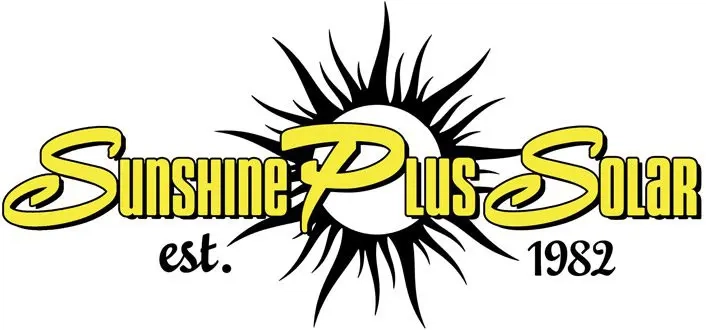Benefits of Solar Energy
Solar energy comes with multiple benefits. Let's look at a few of them.
- Lowered energy bills: You can avoid the premium cost of grid-tied power by producing some electricity right where you use it. Plus, many states provide net metering which can allow you to sell your unused energy back to help pay for your energy bill.
- Better energy independence: Photovoltaic solar panel systems with battery backups and storage systems work through power outages and emergencies, and you won't have to rely on the grid for your safety and comfort.
- Reduced carbon footprint: Using clean solar power reduces your dependence on conventional, less environmentally-friendly sources.
What Solar Incentives Are Available to Babylon Homeowners?
Governments and power companies often reward homeowners for embracing solar. Here are some of the tax credits, rebates, or other programs you could qualify for.
Incentive Type: PACE Financing
Website: nyserda.ny.govIncentive Amount:
Locally determined
Incentive Type: Personal Tax Credit
Website: tax.ny.govIncentive Amount:
25% for solar-electric (PV) and solar-thermal systems; for third-party owned systems this is in reference to the aggregate amount owed under the contract rather than the amount owed in any single year
Incentive Type: Corporate Tax Credit
Incentive Amount:
$0.01/gallon for each percent of biodiesel
Incentive Type: Loan Program
Website: ny-sun.ny.govIncentive Amount:
Residential Customers: $1,500 - $25,000
Small Business and Not-for-Profit Organizations:
Participation Loans: up to $100,000 (at low interest rate)
On-Bill Recovery loans: $50,000 at 2%
Incentive Type: Sales Tax Incentive
Incentive Amount:
100% exemption
Incentive Type: Sales Tax Incentive
Incentive Amount:
Upon local authorization, 100% exemption from local sales tax
Incentive Type: Sales Tax Incentive
Website: tax.ny.govIncentive Amount:
100% exemption from state sales tax
Incentive Type: Property Tax Incentive
Website: tax.ny.govIncentive Amount:
Upon local adoption, 20% - 100% of real property taxes owed; varies by year and certification level
Incentive Type: Property Tax Incentive
Website: tax.ny.govIncentive Amount:
100% of the value added to the residence by the improvements
Incentive Type: Property Tax Incentive
Website: tax.ny.govIncentive Amount:
100% exemption for 15 years (unless local jurisdiction has opted out)
Incentive Type: Rebate Program
Website: ny-sun.ny.govIncentive Amount:
Incentive rates step down over time as MW goals are met. Incentive rates as of 11/27/2019 are:
Residential:
Long Island Region: $0.00/W (MW blocks have been fully subscribed)
Con Edison Region: $0.30/W
Upstate Region: $0.35/W
Low-to-Moderate income customers: $0.80/W (up to 10 kW)
Small Commercial (Non-Residential):Long Island Region: $0.00/W (MW blocks have been fully subscribed)
Con Edison Region: $0.60/W
Up State Region: $0.45/W
Multifamily Affordable Housing Adder: additional $0.40/W (up to 50 kW)
Incentive Type: Rebate Program
Website: psegliny.comIncentive Amount:
Appliances
Advanced Power Strips: $10 - $20
Air Purifier: $25 - $50
Clothes Dryer: $50 - $250
Clothes Washer: $50
Dehumidifier: $30
Dishwasher: $50
Exhaust Fan: $20 - $25
Electric Freezer: $30
Heat Pump Water Heater: $650
Pool Pumps: $150 - $350
Refrigerator: $50
Refrigerator Recycling: $50
Lighting
Instant Rebates Vary by Product
Bulk Light Purchases: Up to $2 - $3/unit
Cooling & Heating
Central Air Conditioning: $450
Smart Thermostat: $85
Ground Source Heat Pump: $2,000/ton
Incentive Type: Rebate Program
Website: nyserda.ny.govIncentive Amount:
Small Systems (≤ 10 cooling tons): $1,500/cooling ton
Large Systems (> 10 cooling tons): $1,200/cooling ton
Incentive Type: Loan Program
Website: nyserda.ny.govIncentive Type: Other Incentive
Website: greenbank.ny.govIncentive Type: Personal Tax Credit
Website: tax.ny.govIncentive Amount:
$0.01/gallon for each percent of biodiesel
Incentive Type: Personal Tax Credit
Website: ecowatch.comIncentive Amount:
30% federal tax credit for systems placed in service after 12/31/2021 and before 01/01/2033. Good for: solar water heat, solar photovoltaics, biomass, geothermal heat pumps, wind (small), fuel cells using renewable fuels.
How To Choose the Best Solar Company in Babylon
The more comprehensive your provider search is, the better your photovoltaic system will ultimately perform. Make your choice based on the following vital factors.
Licensing and Training
New York state does not issue licenses to contractors, so you should check with your city or county government for its specific requirements and regulations. You should also visit a company's website to learn about its private certifications. Two of the most prestigious are the PV Installation Professional and Solar Heating Installer certificates, granted by the North American Board of Certified Energy Practitioners (NABCEP). Some companies don't publish this information online, so you should also ask your estimator about them.
Cost of Solar Panels in Babylon
Your solar modules' type will influence how much power you can generate. Monocrystalline panels are among the highest quality and cost the most but perform the best. Polycrystalline panels offer you a budget panel with a traditional design, but at the cost of less power generation. Thin-film panels have a low cost and are excellent for non-traditional roofs, but aren't recommended for large home installations.
Additional system add-ons, such as electric vehicle (EV) chargers and battery storage, will increase your overall installation costs. However, they might make your solar system more efficient and convenient to use. Not all solar contractors include these extras, so look for a company that sells them if it's essential for you.
If you're a resident of Babylon and are considering getting a five-kilowatt solar energy system, you could plan to spend about $18,250 for materials and labor. Find more information on specific component and solar panel costs in the table.
| Solar Panel Cost | Average Cost |
|---|---|
| Solar Monocrystalline | $1,180 |
| Solar Polycrystalline | $920 |
| Thin-Film | $538 |
| Solar Battery | $755 |
| Solar Home EV Charger | $2,832 |
Financing Solar Energy in Babylon
Choosing the ideal financing option will influence your overall solar system cost and expected savings. Common payment options include power purchase agreements, loans, leases, and cash payments. We suggest paying with cash or using a solar loan for the highest return on investment (ROI). Cash payments require a hefty sum up-front, but you’ll pay the least long-term by avoiding interest. You’ll also own your system and can apply for solar panel incentives to cut your total costs. Solar loans are another good option if you don’t want to make a big initial investment. You can pay for your system in monthly installments while still enjoying energy bill savings and solar incentives. However, you’ll spend more in total due to accruing interest. Solar leases allow you to rent your panels for a fixed monthly rate, while PPAs let you pay just for the energy you use, much like an electric bill. Both options disqualify you for solar incentives and do not provide you system ownership. Solar experts generally don't recommend them, but they might be suitable in some cases. Look for companies that offer two or more payment plans to find the right fit for your budget.
The table below lists the average payback periods for different capacities of solar systems in Babylon.
A 26% federal solar tax credit applies to recently-purchased solar equipment purchased through 2032. Additional incentives may be available through local governments, usually in the form of rebates and special financing programs.
| Solar System Capacity | Estimated Payback period |
|---|---|
| 1 kW | 2.6 years |
| 2 kW | 5.1 years |
| 5 kW | 12.9 years |
| 10 kW | 25.7 years |
Ready to Get a Quote on Your Solar Project?
Please enter a valid 5-digit zip code!
Frequently Asked Questions About Solar in Babylon
How much energy and money could I save per year by switching to solar?
How popular is solar energy in Babylon?
Should I expect a boost in my property value after installing solar panels?
Could I still use solar power if I live in a rainy, wooded, or dark area?
How long does the solar installation process take?
How long does it take to pay back a solar loan in Babylon?
What's the difference between a PPA and traditional financing?
In contrast, solar loans can come from the government, installer, local banks and specialty lenders. You'll need to pass a credit check to qualify for most of them. While the upfront costs are greater, and you'll be responsible for upkeep, you'll also have full ownership rights and can apply for many more incentives.
To share feedback or ask a question about this article, send a note to our Reviews Team at reviewsteam@thisoldhousereviews.com.

















